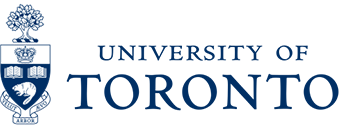This is a 2-year program based at Sunnybrook Health Sciences Centre Division of Urology that consists of one year in clinical urology and a second year in clinical research. Funding is available for both years.
The overall aims of the Fellowship are to:
- Provide excellent training for an individual who wants to pursue a career in academic urology with a specialty in Urinary Tract Dysfunction (Functional Urology).
- Improve the art and science of Urology through basic and applied clinical research in urodynamics and neurourology, overactive bladder, voiding function and dysfunction, female urology and pelvic floor dysfunction, and male urethral reconstruction and to disseminate and teach these concepts.
Clinical Facilities
The clinical facilities devoted to lower urinary tract problems of the Sunnybrook Division include 3 full-time academic urologists who are engaged in the management of urinary incontinence, overactive bladder, neurogenic, and non-neurogenic voiding dysfunction, and female and male lower urinary tract reconstruction. There is also collaboration with 2 academic urologists at the Toronto Western Hospital and 5 pediatric urologists at the Hospital for Sick Children.
The Division has a clinical facility containing 9 examinations rooms and 3 procedure rooms. The procedure rooms are fully equipped for local anaesthetic cystoscopic, ureteroscopic, and nephroscopic procedures with nursing and technical support staff. Two image intensifiers are present in the unit and are utilized for radiographic imaging as required.
The Urodynamics Facilities consist of a state-of-the-art urodynamics system that is used for both video and non-video urodynamic studies which are carried out regularly. The facility is staffed by 3 fully trained urodynamic nurses and technical support. The studies are reviewed and reported by the team of specialists devoted to Lower Urinary Tract disorders. Additional clinical facilities include a complement of inpatient beds and dedicated OR time for inpatient and outpatient anaesthetic procedures.
Research Facilities
The Division has Clinical Research offices in the Urology Education and Research Centre. There are 2 full time research coordinators working on multiple projects related to Lower Urinary Tract dysfunction. The subject areas are overactive bladder both neurogenic and non-neurogenic, stress urinary incontinence in men and women, interstitial cystitis and painful bladder disorder.
The Centre has a boardroom and library for meetings and conferences and study areas with computer facilities. There is also administrative/secretarial support for the Centre.
The clinical databases in the division include urodynamic studies related to stress incontinence in women, post-prostatectomy incontinence in men, and Multiple Sclerosis, neurogenic bladder. Additional databases are artificial sphincters and slings in men, mid-urethral slings, fascial slings and prolapse repairs in women, and augmentation cystoplasties. These databases include records of approximately four thousand patients. The Toronto Western Hospital contributes additional clinical research subjects to the databases. The second year involves the opportunity for enrolling in a Masters Degree program at the University of Toronto in a field related to Functional Urology.
Specific Goals of Clinical Training
1. The clinical fellowship portion is designed to give the applicant enhanced clinical expertise in the following areas:
1) Develop competency in clinical management of:
- Urinary incontinence
- Female pelvic floor
- UrodynamicsUrologic male and female lower urinary tract reconstruction
2) Develop competency in the correct application, choice, and performance of surgical procedures relating to:
- Female and male stress incontinence procedures
- Female pelvic floor reconstructive procedures
- Male and female lower urinary tract including urethral reconstructive procedures
3) Additional fellowship goals are development of skills related to:
- Evaluation and management of complex incontinence
- Urodynamics procedures and interpretation
- Clinical research in lower urinary tract problems
- Education of residents and medical students
2. The CanMEDS competencies, as outlined by the Royal College of Physicians and Surgeons of Canada, are relevant to all surgeons, regardless of their country of origin. All University of Toronto Department of Surgery clinical fellows are expected to have these basic skill sets and will be evaluated on them. See CanMEDs competencies on page 15-17 of the Clinical Fellowship Task Force report.
3. Fellows must demonstrate appropriate knowledge relating to gender, culture, and ethnicity pertinent to their specialty.
4. Consistent with the obligation of a physician, fellows must endeavor to deliver the highest quality care with integrity, honesty, and compassion while exhibiting appropriate personal and interpersonal professional behavior. Fellows must adhere to the principles outlined in the University of Toronto Code of Student Conduct (http://www.governingcouncil.utoronto.ca/policies/studentc.htm)
5. As continuing education and evaluations are necessary throughout a surgeon’s life, fellows are expected to have an understanding of the role of research and the need for critical analysis of current scientific and practice developments related to their specialty.
Interested applicants should submit their curriculum vitae and three letters of reference to:
Dr. Sender Herschorn
Sunnybrook Health Science Centre
2075 Bayview Avenue, A309
Toronto, Ontario M4N 3M5
Tel: (416) 480-5169
Email: s.herschorn@utoronto.ca
Save or Send This Page


